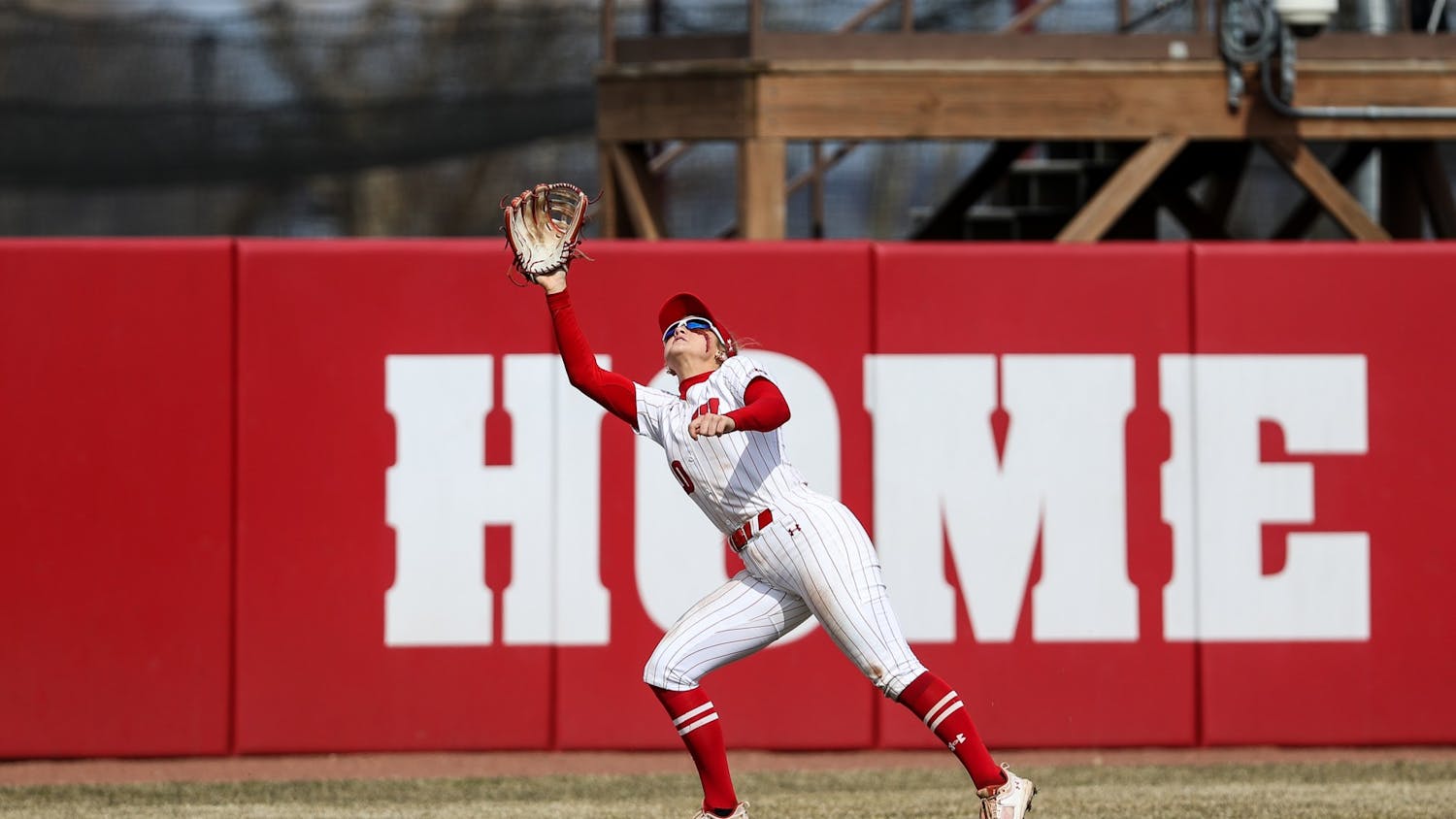Once again, the Badgers dug themselves into an early hole. Slow starts have plagued Wisconsin all season, and they have not been able to recover. Against both Boston College and No. 2 Denver last weekend, the Badgers crawled back from being down three to bring the contest within one, but could not claim that elusive comeback victory.
Despite finding themselves down 3-1 early, the Badgers (7-5-1) found a way to force overtime against the University of Nebraska-Omaha (7-5-3), and ultimately earned a tie with a consolation shootout victory.
Still, though a tie is an improvement on their two “comeback” losses, UW still ultimately did not win a game against a team that it outplayed for the majority of the contest.
“It definitely wasn’t the start we wanted,” sophomore forward Luke Kunin said. “But we took it upon ourselves to go out, and you play the way that we know how to play and when we do things like that, teams can’t hang with us like you saw there in the second and third.”
As the Badgers have found out time and time again this season, this Wisconsin team goes as its defense goes. Accordingly, the Badgers’ slow start was primarily a result of poor play in the defensive zone.
Throughout almost the entire first period, the Badgers struggled to play good transition defense. At least five times in that frame alone, Omaha forwards found a way to break out of their defensive zone easily and get behind the Badgers’ defense in the neutral zone, giving them either mini-breakaways or odd-man rushes that accounted for at least two of their goals. The Badgers simply did not create an effective-enough forecheck in the first to help out their defense in transition.
“Part of playing good defensively is playing good offensively,” Granato said. “[It’s] getting in on the forecheck and establishing some offensive zone time. It’s pretty hard for them to get chances when we are doing things well in the offensive zone.”
Not only did the Badgers struggle in transition defense in the first, but they also turned the puck over too many times in the defensive zone. Whether it was blindly throwing a puck to Omaha in the slot or giving it away behind the net, the Badgers did not consistently protect the puck in their own zone, directly leading to Omaha’s big lead in the first.
“To be a good team, you have to [play good defense] consistently,” Granato said. “I think we’re a really good team a lot of times, but we haven’t done it consistently enough to say we belong with the big boys yet.”
As the first period demonstrated, when the Badgers do not play good defense, they struggle as a team. Conversely, when the team tightens up its transition defense and in-zone puck protection, the Badgers thrive in all other areas of their game. Although the defensive zone coverage wasn’t perfect over the last two periods, the Badgers did enough defensively to allow them to put themselves in a position to come back.
“[There was a] big improvement as the game went on,” Granato said. “We had a discussion about getting to our game. We feel pretty good about the way the last two periods went.”
Though it takes a whole team to play consistent defense, it often takes only one player to kickstart a defensive stand like the Badgers had in the second and third.
“In the second period, especially on their powerplay, we blocked at least six or seven shots. And that shows the courage, one, the commitment, two, and that’s when I felt good about our team,” Granato said. “We did do that when we fell behind 3-1, and [junior forward Ryan Wagner] is one of the guys that leads the way every night, at the net front, blocking shots, finishing checks, being wherever he has to be to help us.”
Wagner was “Mr. Do-It-All” for the Badgers Friday night, both scoring a goal and making numerous defensive plays to jumpstart the Badgers’ comeback effort. Wagner seemed to be flying all over the ice, doing whatever he could to block a shot or make a play for his teammates. Although it was highlighted against Omaha, Wagner has been doing this all season for the Badgers, and has been playing a bigger role for them each time he steps on the ice.
“I would definitely say I’m gaining confidence. I have been working on my game in practice,” Wagner said. “I just think it’s nice to have both things [stick handling and defensive game] in your back pocket. I mean, coach trusts me in a lot of situations, which is good moving forward. I like to think of myself as a very versatile forward.”
Wagner played a full 60 minutes of defensive hockey tonight, and if the rest of the Badgers can follow suit, they will have a chance to be the dominating team that they were in the second and third periods.






